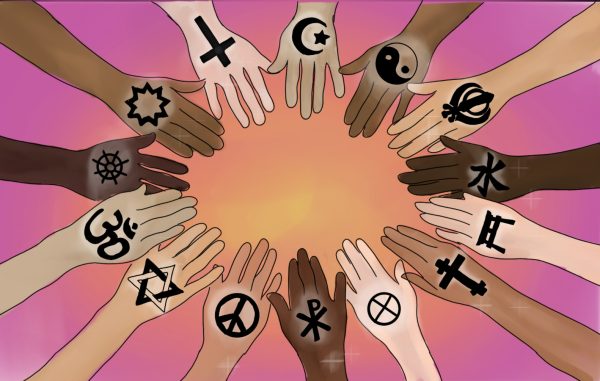The Naked Truth of Shein
May 3, 2023
What memories does the year 2020 evoke for you?
The echo of lockdown might ring in your mind, bringing forth visions of the constant video calls and mandated social distancing that defined the year. Or maybe it was the multitude of TV shows that you binge-watched during the countless hours at home.
But if you were a regular Tik Tok user, it just might be the plethora of interesting trends that frequented the app. From fluffy bucket hats to an abundance of cow print, there is no doubt that masses of quirky items ruled millions of users’ screens – and subsequently their closets. Yet, three years on, these previously popular items are more likely to be found gathering dust in a thrift store than populating social media feeds. They are just as easily bought as discarded.
This instance provides clear insight into the destructive nature of the ‘micro-trend’ cycle that is drastically impacting the way society functions. Trending items are bought for miniscule prices, worn for a short while, then discarded. A distinct pattern of wastefulness has crept into the limelight in recent years, one that is the result of the influence prominent individuals hold over the rest of the world.
At the heart of this ‘buy and discard’ cycle lies a multitude of fast fashion companies that adhere to the endless demand of consumers. More specifically, the online store Shein seems to currently rule the fast fashion division. The China based store is currently the most googled clothing site globally, beating out a variety of major corporations such as Nike for the top spot.
Originally founded in 2008, there is no denying the store’s emerging popularity, with over 70 million active shoppers frequenting the site. With Shein reportedly adding 2000 new items daily, there is no question that the site targets an extremely large demographic, winning over potential customers with endless advertising and extraordinarily low prices.
Shein is a definite product of this generation, drawing on curated videos and collaboration with influencers to ensure their label is familiar to the masses. The sole reason for their success is the colossal amount of recognition it receives. From shopping hauls to hashtags, millions of short videos frequent dozens of apps, all singing their praises for the brand.
However, this recognition therefore guarantees that the online store exists on a pedestal, with every flaw broadcasted for the world to see. For example, Time magazine released an exposé earlier this year, broadcasting the damage Shein has caused to the environment. It seems that the issues the store harbours lie deep beneath social affairs. The fast fashion company churns out over 6.3 million tons of carbon dioxide annually and this greenhouse gas is widely considered one of the Earth’s most toxic gases, with the highest amounts ever recorded being emitted into the atmosphere.
The sheer unsustainability of the brand is extremely disturbing, but the company’s reign of terror doesn’t cease there.
In 2021, researchers visited a Guangzhou Shein factory to gain content for a documentary. What they found was appalling conditions, tired workers, and shocking stories. Garment workers reported accounts of 75-hour weeks, well surpassing the legal work limits.
With these findings being well broadcasted to the Western World, it is all the more upsetting that renowned influencers continue to promote this company online. With other fashion stores such as Zara and H&M still garnering millions of sales, this harmful industry shows no sign of halting.
In Australia, we are an affluent country with the capability to support fashion which is stylish and sustainable. It should not come at the expense of others – or the environment.
What eco-friendly brands do you suggest could combat this issue?












